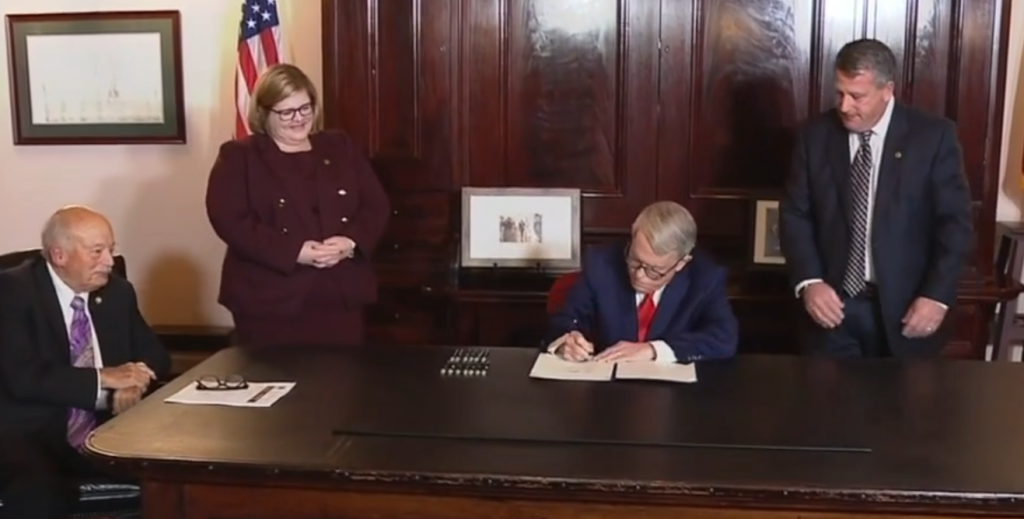COLUMBUS, Ohio — In a late-night move, Governor Mike DeWine signed a sweeping bill that permits law enforcement agencies to charge Ohioans for police footage — including body camera and jail surveillance video. Known as House Bill 315, the legislation cleared the General Assembly around 2 a.m. during a 17-hour lame-duck session, and the governor announced his signature, along with select line-item vetoes in other bills, shortly before midnight.

Potentially High Fees for Police Footage
The newly signed measure allows agencies to charge an estimated cost of up to $75 per hour for processing footage requests, with a maximum fee of $750 per request. Requesters must pay in advance. Critics say this provision could deter journalists and members of the public from obtaining crucial footage of police interactions.
“This is a very heavy burden,” DeWine said at a recent press conference, emphasizing that the option to charge for video could be especially helpful for small police departments. “We have close to 1,000 police departments in Ohio, and many of them are very small.”
Governor Acknowledges Concerns
While defending the bill’s optional fee structure, DeWine also expressed support for public transparency:
“No law enforcement agency should ever have to choose between diverting resources for officers on the street and moving them to administrative tasks like lengthy video redaction reviews,” DeWine said in a statement. “However, I strongly support the public’s—and the news media’s—right to access public records.”
He added that if the measure leads to “unforeseen consequences,” he will work with lawmakers to revisit the language.
Mixed Reactions
State Sen. Niraj Antani (R-Miamisburg), who sponsored previous legislation affirming police video as public record, expressed reservations:
“I am deeply concerned a $75 per hour fee will be burdensome. I appreciate Governor DeWine saying he will monitor this to ensure the fee does not restrict the public’s access to these videos, and that if it does he will work with the General Assembly to fix this.”
Meanwhile, officials in Cleveland have already stated they do not plan to impose fees for body camera requests, despite the new authority granted by the bill.
Other Line-Item Vetoes
House Bill 315 contained appropriations, enabling DeWine to veto specific provisions. One veto removed language that would have prevented state medical boards from disciplining health professionals for expressing medical opinions at odds with state policy. DeWine argued this provision could jeopardize patient safety by potentially shielding providers who spread misinformation or prescribe harmful treatments under the guise of “personal opinion.”
“We think it’s very important to hold doctors to the standard of care when evaluating whether or not they’ve committed misconduct,” said Medical Board President Dr. Jonathan B. Feibel, supporting the governor’s decision.
Looking Ahead
The new law immediately raises questions about balancing the cost and labor of redacting police footage with the public’s right to transparency. While Governor DeWine has affirmed his willingness to revisit the legislation if it proves too restrictive, critics worry the new fees could hinder accountability by making it more challenging to obtain public video evidence.